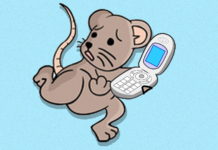Weeding for Eisenhower by T.D. Johnston
An hour after his chat with Franklin Redstone, Paul Garrett sat on an old metal folding chair at the north end of the soccer field. It was an Indian summer October afternoon in the Lowcountry, and already he was wiping perspiration from his brow and chin. He loosened his striped tie slightly to let his neck breathe, keeping the tie in rough position for the two meetings which would follow this collaboration with the four eighth-grade boys.
The boys were already making excellent progress. The first of two red wheelbarrows was already a quarter full, the short but stubborn weeds accumulating with every careful drop made by each of the four students.
The headmaster pointed to his left. “Billy, grab that candy wrapper over there, will you?”
Billy Painter, kneeling over a troublesome patch of weed moss, looked in the direction indicated by the headmaster’s forefinger.
“What candy wrapper, Mr. G?” he asked earnestly.
“Well, Billy, if you get up and investigate, I promise you’ll find something.”
Billy, a rangy, athletic boy with close-cropped brown hair, clambered to his feet and began walking in small ovals until he found something. He bent over and picked up a small triangular piece of flimsy plastic, about an inch in length, and held it up for the headmaster to see.
“Is this what you mean, Mr. G?”
“Sure is, Bill. Well done! Back to it now.”
Billy placed the piece of torn-off candy-bar wrapper into the wheelbarrow and resumed his position picking at the weed moss.
“Mr. Garrett?”
Paul looked to his right to find that Charles Taskill had risen to his knees with a handful of weeds.
“Yes, Charles?”
“That wasn’t a candy wrapper, Mr. Garrett. It was just the little piece you tear off to be able to eat the candy bar. You said we were pulling weeds, and then could go home, but now you say Billy has to pick up trash, and that’s not even trash. Whoever ate that candy bar threw the big part of the wrapper away like they’re supposed to. And even if it is trash, why should we have to pick it up? Whoever left it gets away with it, but we have to pick it up? That’s not fair! None of this is fair!”
“Why isn’t it fair, Charles?” the headmaster asked.
Charles threw the weeds onto the ground but remained on his knees.
“Because none of us did anything wrong here at school. Right, guys?”
The other three boys kept at the weeds, glancing furtively at the headmaster. Billy answered the question quietly. “Right.”
Charles, emboldened by Billy’s confirmation, said “See, Mr. Garrett? This isn’t fair! We didn’t do anything wrong at school. We all did it at home. My mom says that isn’t your, your… your jooris… dexshun…”
Paul decided to help the boy out. “Do you mean ‘jurisdiction,’ Charles?”
“Yeah! That’s it! My mom says we can sue you for making me come to your office, and for making us do hard labor when we didn’t do anything wrong.”
“Well, Charles, your mom is a smart lady, so I’m not going to talk about what she says, okay?”
Charles looked surprised, and looked around at his schoolmates. “Um. Okay.”
“So I want to talk about what you have said. How’s that sound?”
“Okay.” Charles went back to work on the weeds, picking up the small pile in front of him, rising to deposit it into the wheelbarrow, and returning to his spot.
“Charles, I don’t want to be unfair. Do all you guys understand that?”
There was a full round of affirmative responses, with a couple of ‘sirs’ thrown in.
“Okay. Thanks, guys. So Charles, when you said you’re doing hard labor for not doing anything wrong, do you mean that?”
“About the hard labor?”
“Charles.”
“Okay, sir. Sorry. Um. Yes.”
“You think you didn’t do anything wrong.”
“No, sir. I mean, yes, I did something wrong, but I didn’t do it here.”
“Okay, Charles, so you did do something wrong. Was it mean?”
“Yes, sir.”
“Was it ugly?”
“Um. Yes, sir.”
“Was it meant to hurt somebody else?”
“Well, not on purpose.”
“Charles.”
“Yes, sir.”
“Was it on purpose?”
“Um. Yes, sir.”
“But you did it at home, in your bedroom, at your computer.”
“Yes, sir! I did it there.”
“So I should say it’s okay for you to be a student here even if you want to be mean, ugly and deliberately hurtful to other people in the community, as long as you do it at home or in restaurants or other places like that.”
Charles looked around at the others. Their heads were down, intent upon the work at hand.
“Mr. Garrett, I didn’t say I want to be all those things,” Charles said quietly.
“Charles, if you don’t want to be all those things, then don’t do them at home on your computer. You sent messages to the whole world, Charles, through cyberspace, that you want to be all those things. And you, Eric. And you, Carter. And you, Billy. You called other people names that I don’t think you’d use in front of me or in front of your parents. You used language that is disgusting, offensive and ignorant in every way. If you called me those names right now, what do you think would happen?”
In unison the boys replied “We’d be expelled.”
“Yes, I’m afraid so, boys. I would have no choice, because you know better than that. But let me ask you this. If you had written those messages on the campus computers instead of at home, what do you think I would have done?”
Charles offered an answer. “Expelled us?”
“No, Charles. I don’t think you’d learn anything from that. No, I wouldn’t have expelled you boys. But if you want, I’ll tell you what I would have done.”
Billy raised his hand as if in class. “What, Mr. G?” he asked eagerly.
Ah, thought Paul to himself. These really are great kids.
Paul leaned forward as if sharing a deep secret. The boys, all four of them, did likewise, as if surrounding a campfire.
Paul looked around to make sure nobody else was eavesdropping on the conversation.
“First, I would have made you come to my office, all four of you. And then…”
“Yeah?” came the excited response from all four boys, but not in unison. Charles Taskill’s fervent ‘yeah?’ came first.
“Then I would have had a good conversation with you about what was wrong with doing what you did. And then…”
Silence was interrupted only by the soft whisk of the afternoon breeze and the cars passing by on the street about a hundred yards away.
“… I would have made you pull weeds with me on the soccer field.”
The boys kept staring intently, waiting for something more.
Billy Painter broke the silence. “But, but that’s what we’re doing now. That whole thing’s what happened already!”
The other boys started laughing. So did the headmaster.
“Now why would it be the same, boys? Seriously, think about it. Why would it be the same?”
Charles raised his hand.
“Yes, Charles?”
“Because what we did wrong would have been the same?”
“Outstanding, young man!” The headmaster rose to his feet and invited the boys to do the same, staying in the tight campfire-style circle. The boys beamed, grinning at each other as the headmaster shook their hands.
“But wait a second, guys. If what you did wrong was the same, and if the consequences would have been the same, does it matter where you did something wrong, or whether you did something wrong?”
In unison again, the boys said “Whether!”
“Excellent. Now keep something in mind about who you are, and what and who you want to become. ‘Character is what you do and who you are when nobody is looking.’”
“Even in our rooms,” said Eric Horton.
“Especially in your rooms,” said Paul Garrett.
The boys went back to their work without being asked. Paul Garrett hunched up his khaki slacks and joined them on his knees, holding up a large chunk of ugly weed moss and proclaiming himself the weed-pulling champion of Saxby Academy. A round cry of enthusiastic dissent arose from the four busy young men around him, prompting the headmaster to withdraw an Eisenhower silver dollar from his right front pants pocket. Displaying it in his open palm, he dared three young men to outweed the ‘old champion.’
As he sank back down to increase his lead in the competition, his cell phone pinged. He pulled it from his left pocket. The screen revealed a text from Franklin Redstone. The board was calling a special session tonight at 6. Could Paul arrive ten minutes early?
The headmaster smiled, shook his head, and sent a quick text to his wife that he would be unavoidably late for dinner.





